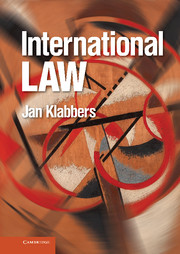Book contents
- Frontmatter
- Contents
- Detailed table of contents
- Table of cases
- Preface
- List of abbreviations
- Part I The structure of international law
- Part II The substance of international law
- 10 Use of force
- 11 The law of armed conflict
- 12 International criminal law
- 13 The seas, the air and outer space
- 14 Protecting the environment
- 15 The global economy
- Part III The surroundings of international law
- Bibliography
- Index
- References
15 - The global economy
from Part II - The substance of international law
- Frontmatter
- Contents
- Detailed table of contents
- Table of cases
- Preface
- List of abbreviations
- Part I The structure of international law
- Part II The substance of international law
- 10 Use of force
- 11 The law of armed conflict
- 12 International criminal law
- 13 The seas, the air and outer space
- 14 Protecting the environment
- 15 The global economy
- Part III The surroundings of international law
- Bibliography
- Index
- References
Summary
INTRODUCTION
It is probably fairly accurate to suggest that much of international law deals with the global economy, in one way or another. While this may not directly apply to human rights or humanitarian law, other branches of international law have much to do with the economy. Thus, the law of the sea was traditionally concerned with facilitating trade and communication. It is no coincidence that Grotius wrote his famous tract on the freedom of the high seas on assignment by the Dutch East Indies Company; legal argument was deemed necessary for economic purposes, as Spain and Portugal were about to divide the high seas between them, which would have had nasty economic repercussions for other seafaring nations.
By the same token, maritime delimitation can be understood as an exercise in dividing potential spoils, especially since oil and gas reserves have been found on the continental shelf, and since deep seabed exploration has become at least hypothetically feasible. Likewise, rules on the distribution of satellites are economic in inspiration, whereas environmental rules function, to some extent, to stimulate competition on equal terms; a state with strict environmental standards may find it more difficult to attract foreign investment than a state with more relaxed environmental standards. Moreover, environmental regimes on occasion make use of economic incentives, such as the facility to trade emissions.
- Type
- Chapter
- Information
- International Law , pp. 266 - 284Publisher: Cambridge University PressPrint publication year: 2013



